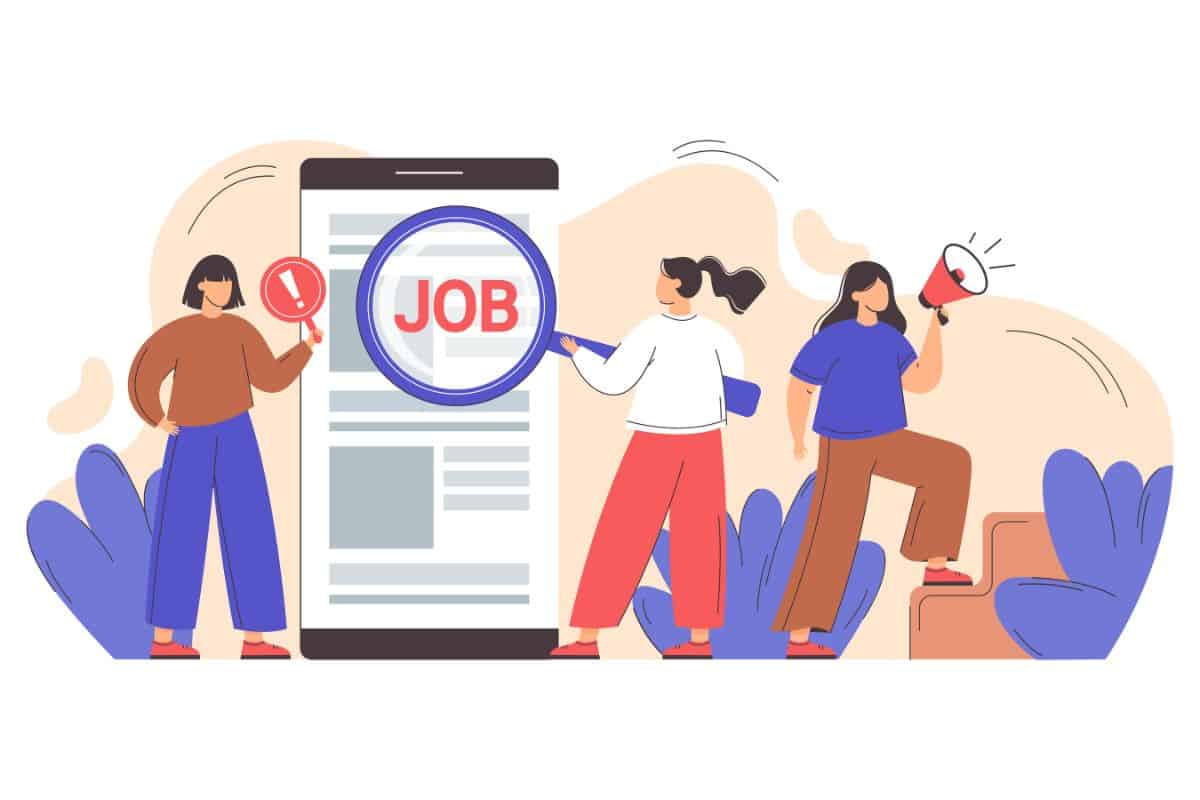If you’re wondering whether it’s a good time to be job hunting, the short answer is: it depends.
The job market in 2025 is a mixed bag. Some industries are thriving, others are shrinking, and AI is shaking things up faster than ever.
In this article, we’ll explore how is the job market right now by covering the latest job market trends, which sectors are hiring (and which are firing), and how to stand out in a competitive landscape.
All our data comes from trusted sources like the U.S. Bureau of Labor Statistics, LinkedIn’s Workforce Reports, and the Future of Jobs 2025 study.
Let’s start with key job market trends in 2025.
Key Job Market Trends in 2025
The job market in 2025 is looking like a wild mix of old habits dying hard and new rules taking over.
AI Skills Are in High Demand
If you’ve been ignoring the whole AI thing, thinking it’s just another tech fad, guess what? You’re wrong.
According to the Future of Jobs Report 2025, data from Coursera shows that demand for Generative AI training is skyrocketing, with India and the U.S. leading the charge.


Never Worry About AI Detecting Your Texts Again. Undetectable AI Can Help You:
- Make your AI assisted writing appear human-like.
- Bypass all major AI detection tools with just one click.
- Use AI safely and confidently in school and work.
Companies are scrambling to get their teams up to speed.
LinkedIn’s January 2025 Work Change Report backs this up, showing that hiring for AI talent has shot up by more than 300% in the last eight years.
Even compared to all other hiring, AI roles have grown by 30% since last fall.
So yes, if you’ve got AI skills, you’re basically holding a golden ticket.
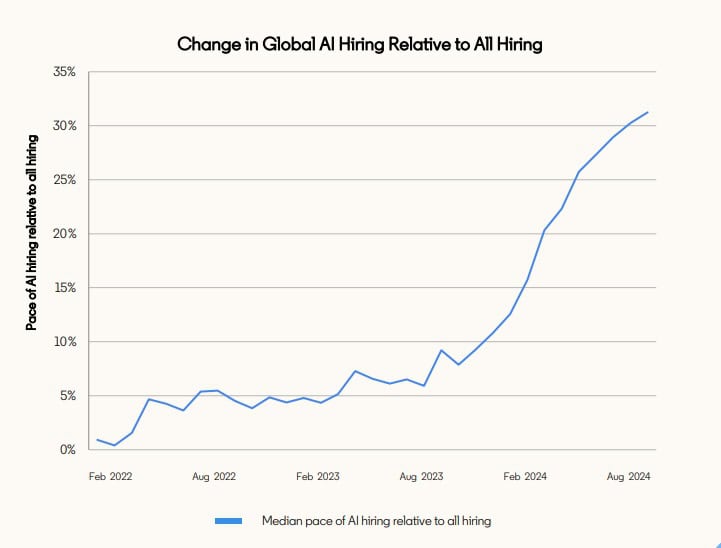
Remote Work is Gaining Recognition
Remember when bosses were all “Get back to the office or else!”? Yeah, that didn’t last.
Companies that forced full-time office returns ended up with miserable employees, lower productivity, and a revolving door of resignations.
Now, in 2025, most businesses have figured out that flexibility is necessary. Hybrid setups are the norm and let people split time between home and office without the guilt trips.
The workplace isn’t going back to the old 9-to-5 grind, but it’s not staying fully remote either.
Tech Roles Are Talk of the Town
Amidst all, how is the tech job market right now?
It’s booming according to World Economic Forum’s Future of Jobs Report 2025.
The fastest-growing jobs are all tech-heavy: Big Data Specialists, AI and Machine Learning pros, Fintech Engineers, and Software Developers.
Green tech is blowing up, too. Jobs in renewable energy, electric vehicles, and environmental engineering are climbing the ranks.
So whether you’re into coding or saving the planet (or both), tech’s where the action is.
Skill Over Degree in Tech Fields
You don’t necessarily need a fancy degree to land a great tech job anymore, for the most part.
Four out of five employers now care more about what you can actually do than where you went to school.
Big names like Google and Apple have dropped degree requirements, and even government jobs in places like Pennsylvania and Minnesota are following suit.
Why? Because locking out self-taught coders, bootcamp grads, and career switchers was leaving way too much talent on the table.
A OneTen study found that 77% of hiring managers struggle to find qualified candidates, and shifting to skills-first hiring not only fixes that but also makes workplaces more diverse.
About two-thirds of companies have rewritten job descriptions to focus on skills, and a third have straight-up deleted degree requirements.
So if you’ve got the skills, the jobs are out there.
Current Employment Data
Now to the main question: how is the job market right now?
Well, it’s chugging along, not exploding, not collapsing, just doing its thing.
The latest numbers from the U.S. Bureau of Labor Statistics show nonfarm payroll employment grew by 177,000 jobs in April, keeping the unemployment rate steady at 4.2%.

That’s pretty much in line with the average monthly gains we’ve seen over the past year.
According to the same source, the number of people employed were 159.5 million as of April.
Breaking it down, healthcare was the biggest job creator for adding 51,000 positions.
Hospitals and outpatient care centers led the charge, which makes sense since people aren’t suddenly going to stop getting sick.
Transportation and warehousing also saw a solid bump in April (+29,000 jobs), with warehousing, delivery services, and air transport all hiring.
Financial jobs kept climbing (+14,000), continuing their rebound after a slump last year. Social assistance jobs grew too, though at a slower rate than usual.
The one sector that took a hit in April 2025 is Federal government jobs, which dropped by 9,000 in April.
Meanwhile, most other industries, construction, manufacturing, retail, and hospitality, stayed flat.
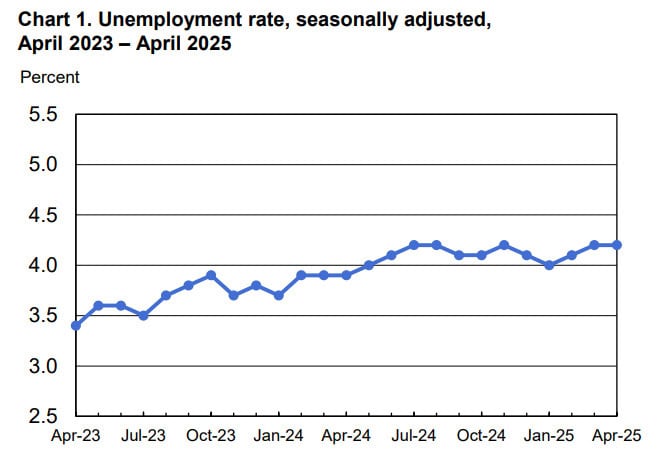
Industries Hiring the Most Right Now
If you’re looking for work, where should you aim?
Well, restaurants are still posting the most job ads, according to resume.io’s data.
After the pandemic gutted the hospitality industry, it’s been slowly rebuilding, and as of last year, nearly 8% of all U.S. job listings were in food service.
Hotels and tourism aren’t far behind, either.
Non-profits are another big player and make up about 5.6% of job postings, which tracks since they employ 10% of the workforce.
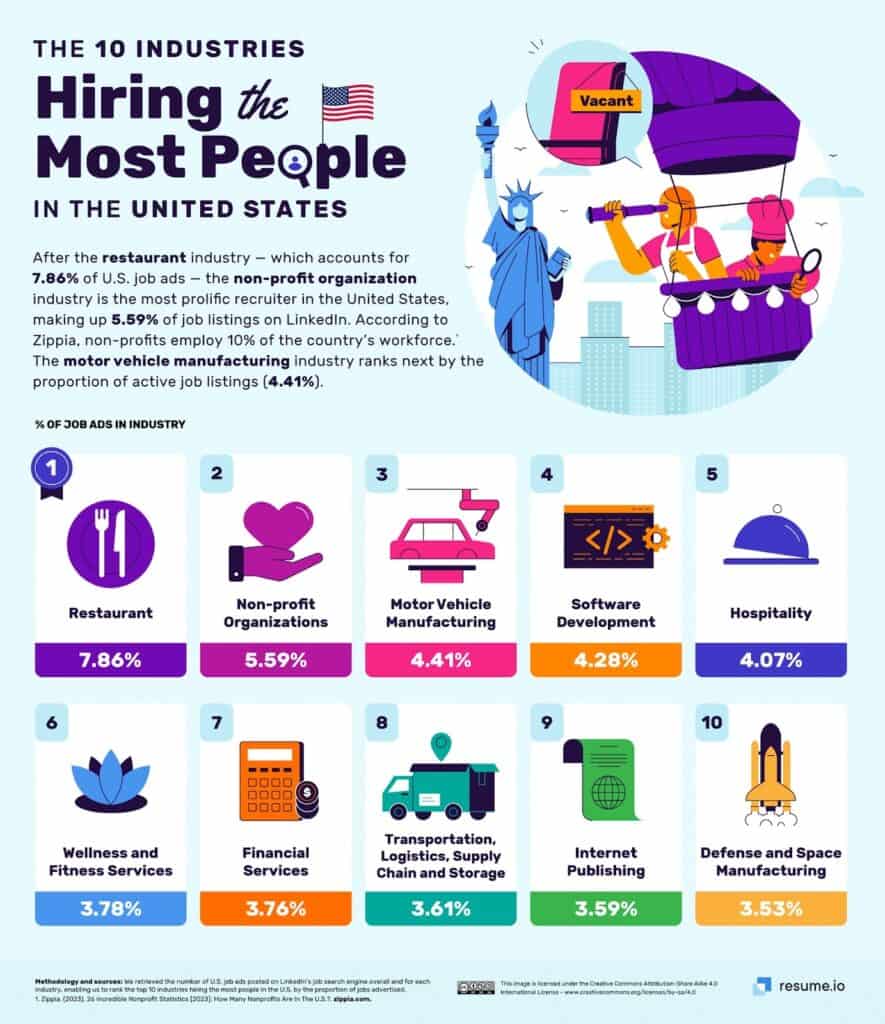
But that data is from 2023 and based on job ads only.
The latest data from the same Future of Jobs Report 2025 urges us to look at how is the IT job market right now.
The IT job market is performing really strong.
Software development roles accounted for over 4% of job ads in 2023, and that number’s only going up.
According to the report, Big Data Specialists, AI and Machine Learning pros, FinTech Engineers, and Software Developers are leading the charge, with demand expected to keep skyrocketing through 2030.
The report predicts that by 2030, tech advancements and green energy shifts will create 170 million new jobs while wiping out about 92 million old ones.
That’s a net gain of 78 million jobs, with tech roles at the front of the pack.
Tech roles aside, delivery drivers, healthcare workers, teachers, and farm laborers will also see big demand.
However, you might have to adapt because the jobs disappearing fastest are the ones that don’t keep up with automation and digital shifts.
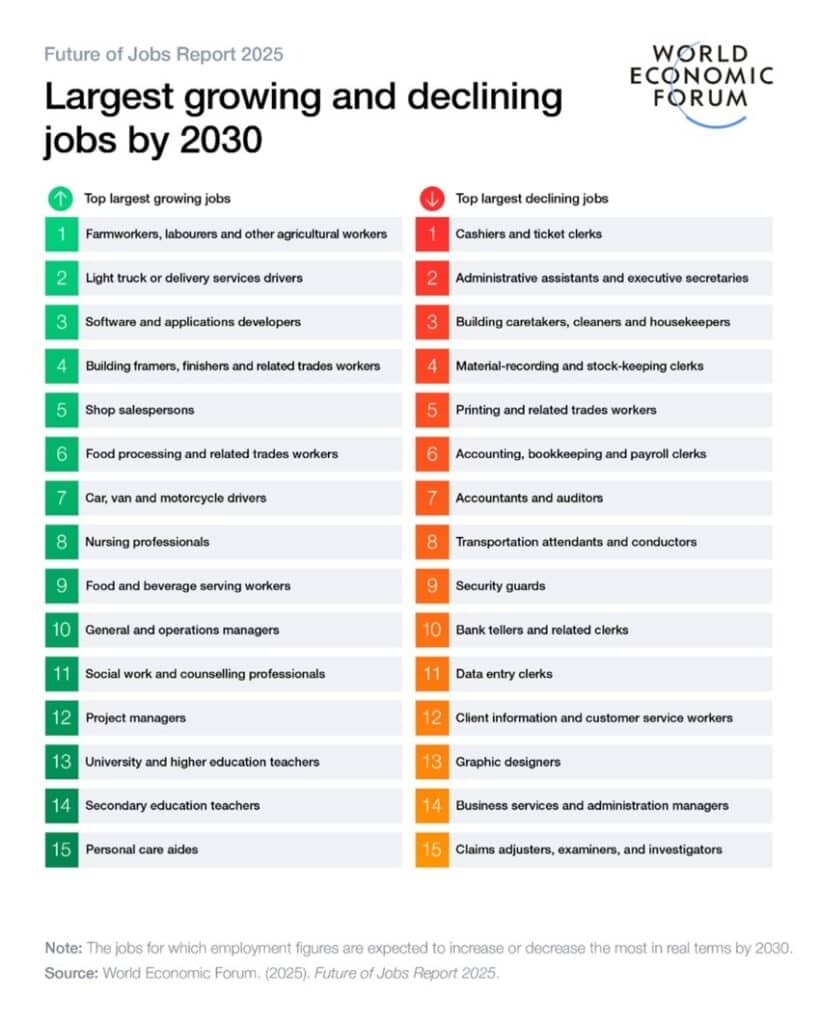
Sectors Facing Slowdowns or Layoffs
Now how bad is the job market right now?
Well, it depends on where you look. Some industries are cruising along just fine, while others are getting squeezed hard.
According to the Future of Jobs Report 2025, clerical jobs are getting hit the worst. Roles like cashiers, ticket clerks, administrative assistants, and accountants are on the decline.
The reasons is AI, automation, and digital tools which are doing their jobs faster and cheaper.
Add in slower economic growth and an aging workforce, and suddenly, a lot of these roles just aren’t needed like they used to be.
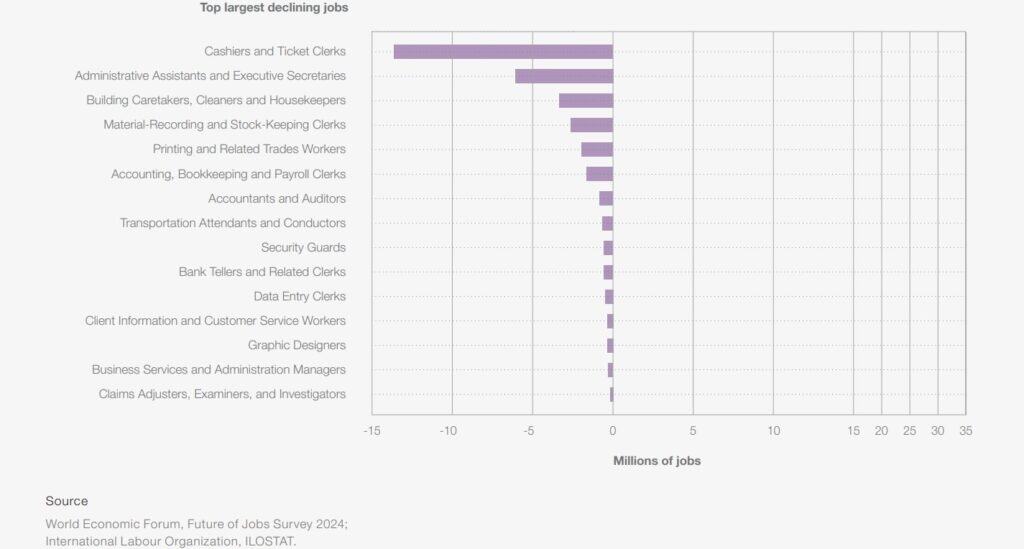
The latest layoff numbers from the U.S. Bureau of Labor Statistics tell a similar story.
March 2025 saw 1.5 million layoffs, which was actually an improvement from February (down by 222K).
But some industries are still bleeding jobs.
Professional and business services got hit hardest (380K layoffs), followed by trade, transportation, and utilities (323K).
Even leisure and hospitality, which had been recovering, cut 187K jobs.
Government jobs weren’t safe either. State and local agencies laid off 99K workers. So yeah, if you’re in one of these shrinking fields, the job hunt might feel like running uphill.
Job Search Challenges in 2025
Looking for work these days is not exactly a walk in the park.
Between AI shaking up industries and way too many people fighting over the same openings, job seekers have their work cut out for them.
Here are what challenges job seekers are facing in 2025.
Evolving Skill Requirements & Skill Gaps
AI and automation are changing what skills you need to stay employed.
Data analysis, AI development, and robotics knowledge are in demand, while old-school administrative skills are fading fast.
Tech is moving so quickly, you’ve got to keep learning just to keep up. If your resume hasn’t been updated in a few years, you might already be behind.
Ghost Jobs
Ever apply for a job, get your hopes up, and then… crickets? You’re not alone.
A whopping 71% of Gen Z job hunters say they’ve been ghosted by employers, compared to 57% of Millennials.
Some companies post jobs just to look like they’re growing, or to collect resumes for future openings. Others leave listings up long after filling the role.
Either way, it’s a frustrating waste of time for anyone actually looking for work.
Mass Applications & Brutal Competition
Think applying to 100 jobs guarantees an offer? Think again.
Over 90% of job seekers say the market feels competitive, with 63% calling it extremely tough.
Gartner’s data shows only 29% of candidates found it easy to land a job in late 2024, down from 48% the year before.
With so many people applying for the same roles, standing out is harder than ever. If you’re not tailoring your resume, networking like crazy, or upskilling constantly, you might just get lost in the pile.
Best Tools for Job Seekers Right Now
Clearly job hunting is a whole different beast than it was even a few years ago.
Luckily, there are some tools out there to make the process less of a nightmare.
For those handling multiple income sources or freelance projects, using a reliable paystub generator can make it easier to manage earnings and provide proof of income when applying for jobs
LinkedIn, Indeed, Glassdoor
These are the big three for a reason.
LinkedIn is where recruiters live, so keeping your profile sharp and active can greatly help.
Indeed’s job board is massive, and its one-click apply feature makes firing off applications stupid easy.
Glassdoor is your inside scoop on company culture, salaries, and whether that “fast-paced environment” really means “you’ll be working weekends.”
Use all three together to cast the widest net.
Undetectable AI’s Smart Applier
Tired of copy-pasting your resume into a million applications? Undetectable AI’s Smart Applier does the grunt work for you.
You just upload your resume, set your preferences, and the tool auto-applies to jobs that fit.

AI Resume Builder
If your resume still has “proficient in Microsoft Office” as a skill, it’s time for an upgrade.
Undetectable AI’s Resume Builder optimizes your resume for ATS (the software that scans resumes before a human ever sees them).
It tweaks resume buzzwords, formatting, and suggests stronger phrasing to make sure you don’t get filtered out before your shot.
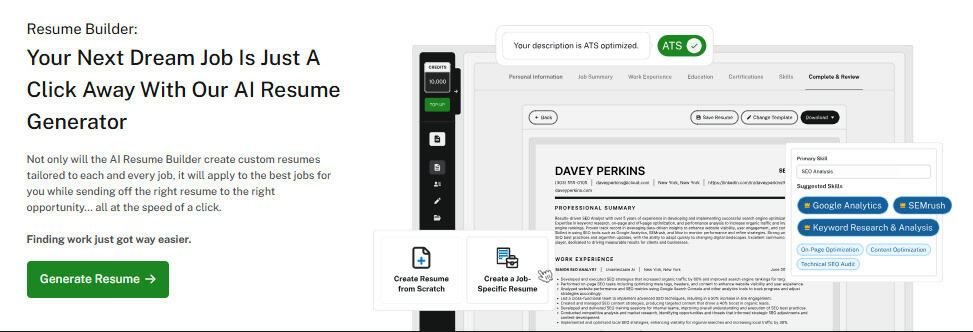
AI Humanizer
Used ChatGPT to draft your cover letter, but the writing screams a robot wrote it?
Our AI Humanizer fixes that issue.
It rewrites AI-generated text to sound natural, unique, and most importantly, like you.
You will no more get flagged by employers who run your application through AI detectors.
Curious about our AI Detector and Humanizer? Try them in the widget below!
Job Alert Systems & Remote Work Boards
Set up alerts on LinkedIn, Indeed, or niche sites like We Work Remotely to get pinged the second relevant jobs drop.
Remote work boards are gold if you’re done with commutes. Just filter by your field and skip the “return to office” drama altogether.
Final Thoughts: Is the Job Market Good Right Now?
In short, how is the job market right now? Well, it’s complicated.
Some sectors (tech, healthcare, green energy) are booming, while others (clerical, administrative) are fading fast.
Remote work isn’t going anywhere, AI skills are basically currency, and competition is brutal. But here’s the thing: there are opportunities if you know where to look and how to stand out.
With so many candidates fighting for the same roles, you can’t just cross your fingers and hope for the best.
A generic resume and manual applications won’t cut it anymore.
You need tools that give you an edge, like an ATS-optimized resume, AI-proof cover letters, and a way to apply faster than everyone else.
And guess what? Undetectable AI does all three.
Our AI Resume Builder creates resumes that get past screening bots, the Smart Applier fires off applications while you sleep, and the AI Humanizer makes sure your materials sound authentically you.
Why leave your job search to chance?
Try Undetectable AI now. Your next offer might be closer than you think.
